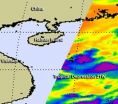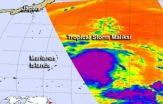Click here for more information.
Richmond, Va. – (October 1, 2012) – A novel therapy in the early stages of development at Virginia Commonwealth University Massey Cancer Center shows promise in providing lasting protection against the progression of multiple myeloma following a stem cell transplant by making the cancer cells easier targets for the immune system.
Outlined in the British Journal of Hematology, the Phase II clinical trial was led by Amir Toor, M.D., hematologist-oncologist in the Bone Marrow Transplant Program and research member of the Developmental Therapeutics program at VCU Massey Cancer Center. The multi-phased therapy first treats patients with a combination of the drugs azacitidine and lenalidomide. Azacitidine forces the cancer cells to express proteins called cancer testis antigens (CTA) that immune system cells called T-cell lymphocytes recognize as foreign. The lenalidomide then boosts the production of T-cell lymphocytes. Using a process called autologous lymphocyte infusion (ALI), the T-cell lymphocytes are then extracted from the patient and given back to them after they undergo a stem cell transplant to restore the stem cells' normal function. Now able to recognize the cancer cells as foreign, the T-cell lymphocytes can potentially protect against a recurrence of multiple myeloma following the stem cell transplant.
"Every cell in the body expresses proteins on their surface that immune system cells scan like a barcode in order to determine whether the cells are normal or if they are foreign. Because multiple myeloma cells are spawned from bone marrow, immune system cells cannot distinguish them from normal healthy cells," says Toor. "Azacitidine essentially changes the barcode on the multiple myeloma cells, causing the immune system cells to attack them," says Toor.
The goal of the trial was to determine whether it was safe, and even possible, to administer the two drugs in combination with an ALI. In total, 14 patients successfully completed the investigational drug therapy. Thirteen of the participants successfully completed the investigational therapy and underwent a stem cell transplant. Four patients had a complete response, meaning no trace of multiple myeloma was detected, and five patients had a very good partial response in which the level of abnormal proteins in their blood decreased by 90 percent.
In order to determine whether the azacitidine caused an increased expression of CTA in the multiple myeloma cells, Toor collaborated with Masoud Manjili, D.V.M., Ph.D., assistant professor of microbiology and immunology at VCU Massey, to conduct laboratory analyses on bone marrow biopsies taken from trial participants before and after treatments. Each patient tested showed an over-expression of multiple CTA, indicating the treatment was successful at forcing the cancer cells to produce these "targets" for the immune system.
"We designed this therapy in a way that could be replicated, fairly inexpensively, at any facility equipped to perform a stem cell transplant," says Toor. "We plan to continue to explore the possibilities of immunotherapies in multiple myeloma patients in search for more effective therapies for this very hard-to-treat disease."
In addition to Manjili, Toor collaborated with John McCarty, M.D., director of the Bone Marrow Transplant Program at VCU Massey, and Harold Chung, M.D., William Clark, M.D., Catherine Roberts, Ph.D., and Allison Hazlett, also all from Massey's Bone Marrow Transplant Program; Kyle Payne, Maciej Kmieciak, Ph.D., from Massey and the Department of Microbiology and Immunology at VCU School of Medicine; Roy Sabo, Ph.D., from VCU Department of Biostatistics and the Developmental Therapeutics program at Massey; and David Williams, M.D., Ph.D., from the Department of Pathology at VCU School of Medicine, co-director of the Tissue and Data Acquisition and Analysis Core and research member of the Developmental Therapeutics program at Massey.
INFORMATION:
The full manuscript of this study can be found online at: http://onlinelibrary.wiley.com/doi/10.1111/j.1365-2141.2012.09225.x/abstract;jsessionid=E1C7D245C01BA1228C06198A250BC990.d03t03
This research was supported, in part, with funding from VCU Massey Cancer Center's NIH-NCI Cancer Center Support Grant P30 CA016059.
News directors: Broadcast access to VCU Massey Cancer Center experts is available through VideoLink ReadyCam. ReadyCam transmits video and audio via fiber optics through a system that is routed to your newsroom. To schedule a live or taped interview, contact John Wallace, (804) 628-1550.
About VCU Massey Cancer Center
VCU Massey Cancer Center is one of only 67 National Cancer Institute-designated institutions in the country that leads and shapes America's cancer research efforts. Working with all kinds of cancers, the Center conducts basic, translational and clinical cancer research, provides state-of-the-art treatments and clinical trials, and promotes cancer prevention and education. Since 1974, Massey has served as an internationally recognized center of excellence. It has one of the largest offerings of clinical trials in Virginia and serves patients in Richmond and in six satellite locations. Its 1,000 researchers, clinicians and staff members are dedicated to improving the quality of human life by developing and delivering effective means to prevent, control and ultimately cure cancer. Visit Massey online at www.massey.vcu.edu or call 877-4-MASSEY for more information.
About VCU and the VCU Medical Center
Virginia Commonwealth University is a major, urban public research university with national and international rankings in sponsored research. Located on two downtown campuses in Richmond, VCU enrolls more than 32,000 students in 211 certificate and degree programs in the arts, sciences and humanities. Sixty-nine of the programs are unique in Virginia, many of them crossing the disciplines of VCU's 13 schools and one college. MCV Hospitals and the health sciences schools of Virginia Commonwealth University compose the VCU Medical Center, one of the nation's leading academic medical centers. For more, see www.vcu.edu.
END


